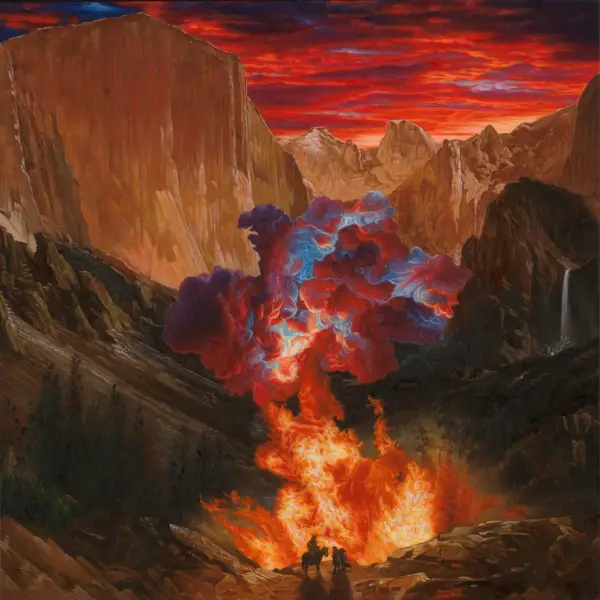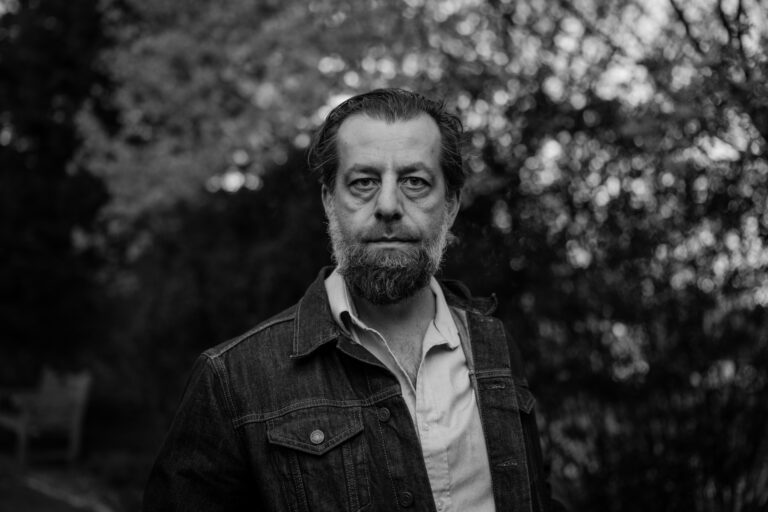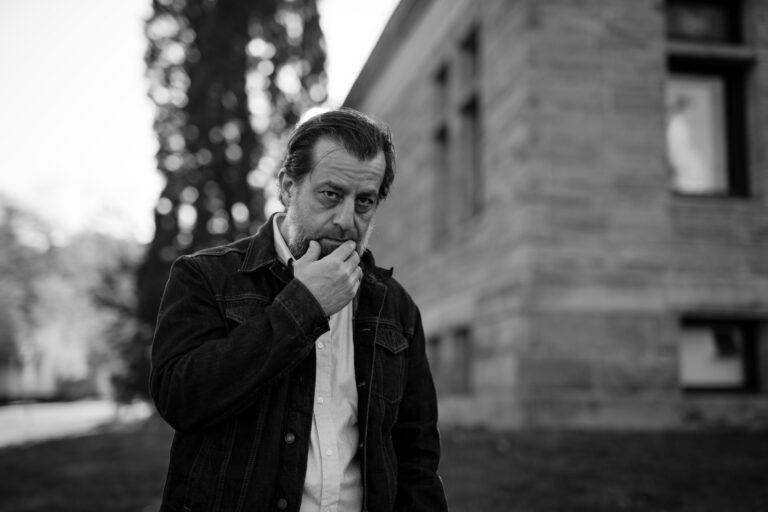The latest release from Sean Rowe, The Darkness Dressed in Colored Lights, is not just a thrilling listen. From first glance, the project begins its journey with listeners through its arresting album cover. The thought-provoking artwork depicts a smokey, neon, opaque cloud appearing in a mountain crevasse above two travelers. The cloud feels an apt metaphor for the album; The Darkness Dressed in Colored Lights envelops you, taking you to places that are both painfully familiar and entirely enlightening.

Rowe recorded the album alongside producer, friend, and longtime collaborator, Troy Pohl. Working from Bon Iver engineer Brian Joseph’s studio in Eau Claire, Wisconsin, the pair aimed to tell Rowe’s stories. An “artist and nomad,” Rowe grew up in Troy, and first began playing locally in 2003. His long career has left him with a vast collection of tales from all corners of his heart. He shares them with heartbreaking clarity on Darkness.

Rowe’s deep and husky voice brings to mind the classics of country and Americana, while simultaneously evoking the vulnerable tenor of Matt Berninger, frontman of The National. His spare and purposeful instrumentals absolutely grip you, letting his singular voice stand out. On the opening track “What Are We Now,” Rowe laments a disintegrating relationship. As the first song he recorded for the album, Rowe said he was dealing with a cold while in the studio for the track. He appreciated “ all the little imperfections. I knew my voice would never quite sound like that again…”
The track ends in a symphonic and strange collection of beeping noises and electric guitar whining. Over roughly 45 seconds, Rowe builds an ambient outro ending in a sound reminiscent of a Tibetan singing bowl, used for meditation.
His experimental use of ambient noises remains a theme throughout the album. But unlike some forays into ambient folk or electro-country, Rowe’s delicate production only amp up the emotional gut-punch of his songwriting. A dedicated naturalist and self-described forager, Rowe has often spoken of his deep connection to the forest and living close to the land. His dedication to the world around him is clear in the intuitive touches he adds to his music. Truly creating a world within a song, Rowe brings storytelling to a whole new level.
For its unique timbre, Rowe’s voice has incredible versatility. On “Gabriel,” where Jeremy Boetcher’s deep, reverberating upright bass makes the perfect partner, Rowe is an old-time blues poet. Meanwhile, “Little Death,” would easily get a summer Jones Beach crowd going, you can almost feel the ambient summer nights and the sloshing of Bud Light. Despite his versatility, Rowe seems most at home on his lowest notes, yet his higher ranges can be just as stunning. The mere cracks and vibrato in his voice singing “I know you feel me/When words don’t reveal me” on the outro record “Toast” is enough to bring tears to eyes.
The pattering beat of album centerpiece “Honey in the Morning” begs to be recounted around a campfire, hand-claps and all. Rowe said he was trying to capture something cinematic in the track, “a quality like a Kubrick or David Lynch film.” The ballad evokes the directors’ experimentation with the unknown perfectly. The chorus, “I know you’re a runner but I was hoping that I wasn’t right/ Honey in the morning turn to poison by tomorrow night” evokes a torrid love story while maintaining an air of mystery. The hypnotic instrumental, anchored by drummer Shane Leonard’s impossibly machine-like drumming, only adds to the uncanny quality. Eventually, an instrumental breakdown so good it’s not fair to spoil is the cherry on top.

For its complex atmospheres and shifting genres, at the heart of Rowe’s beautiful album is emotionally raw songwriting. His words feel deeply relatable and completely personal. In “What Are We Now,” he sings of a lover that just won’t let him go.
When the apple of your eye/ is an oxidizing core/ You’ll be sighing at the moon/ While you’re pumping in the gas/ And you’re hoping that tomorrow’s gonna save your tired ass.
The scene, so familiar yet specific, is paired perfectly with the pained understanding that you love something that may be harming you. Rowe said a recurring theme in his songwriting is “the duality that I feel is in all of us. All the hidden parts, and all the guts that spill out when we’re faced with tragedy, adversity, or a broken heart.”
Darkness captures this duality with stunning clarity, vulnerability, and catharsis. Rowe’s lived-in stories speak of wreckage, recovery, and redemption. Elevated by the skilled instrumental and production work of friends and admired collaborators, each one is truly a gift.
Key Tracks: What Are We Now, Honey In The Morning, Toast


Comments are closed.